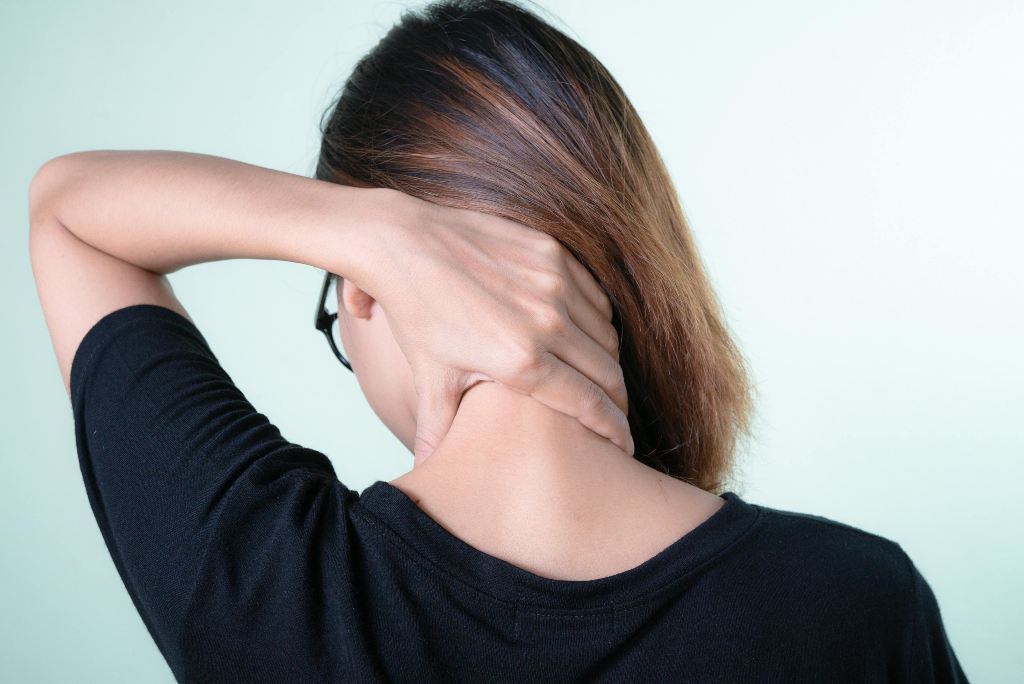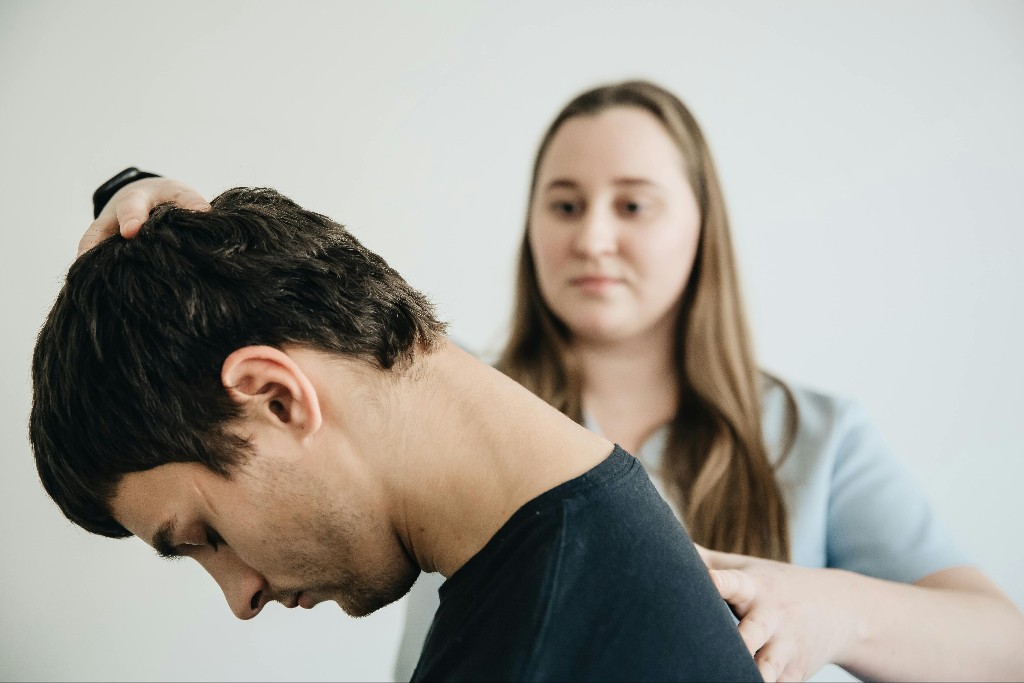Car accident injuries can range from mild to severe and require home remedies or emergency medical attention. A spinal cord injury is an unfortunate situation that can occur due to a car accident. All injuries to the spine should be taken seriously and get checked out by a doctor as soon as possible. If you suffer any signs and symptoms of a spinal cord injury after a car accident, get to a car accident doctor near you right away. In some cases, paramedics and first responders may recommend you get emergency medical treatment for a spinal cord injury. Damage to your spinal cord can impact you in quite a few different ways, which is why you want to get checked out immediately and avoid making an injury worse. It can take a while for you to fully recognize and experience the symptoms of a car accident injury. Car accident doctors have the knowledge and expertise to identify signs of an injury and provide you with the most accurate diagnosis and plan for treatment. Here’s everything you need to know about spinal cord injuries caused by car accidents.
5 Common Spinal Cord Injuries from a Car Accident
There are many kinds of spinal cord injuries that can occur due to a car accident. The vertebrae in your spine contain and protect a bundle of nerves and other tissues known as the spinal cord. The spinal cord runs through the spine and helps connect your brain and nervous system to the rest of your body. Your brain uses the spinal cord to send messages to various nerves in the body that do everything from helping you move to telling your vital organs when and how to function properly. Damage to any part of the spinal cord or spinal column can have significant and lasting impacts on your health and daily life. Here are five common spinal cord injuries, along with their common signs and symptoms.
Bulging Disc
The bones that make up your spine are called vertebrae, and they stack one on top of the other from your neck to the top of your buttocks. In between each of these vertebrae are spinal discs that help provide cushioning and shock absorption. A spinal disc has a tough outer shell with a soft, gel-like inside. The disc has a natural alignment that allows for your spinal movement like bending and stretching. However, too much pressure on the spine can aggravate or damage a spinal disc. For example, a whiplash injury, one of the most common car accident injuries, can impact the discs in your spine. The sudden force and immense pressure on your spine from the car accident can cause part of the spinal disc to slip out of place and bulge outward, aggravating nearby nerves and tissues.
Herniated Disc
Similar to a bulging disc, if the outer shell cracks or tears, the inside of the disc can spill out and aggravate nearby nerves and tissues, which is known as a herniated disc. This type of spinal disc injury can also occur because of a car accident injury like whiplash, where the force of impact puts a lot of pressure and stress on the spine in your neck. A herniated disc can also occur elsewhere along the spine and also commonly occurs in the lower back. A herniated disc in your lower back can lead to pain, tingling, and numbness that radiates into your buttocks and legs. Sometimes referred to as a slipped disc, a herniated disc can lead to pain and discomfort that gets worse with certain movements or postures.
Pinched Nerve
Another common injury that can impact your spinal cord is a pinched nerve. When a bulging or herniated disc aggravates a nearby nerve, it can pinch or compress the nerve. A pinched nerve more commonly occurs in the lower back, especially when excessive pressure or stress is on the last five vertebrae of your spine and their spinal discs in between. Spinal discs can compress a nerve, along with misalignments of vertebrae, swollen or inflamed soft tissue, and other types of injuries. No matter what causes a pinched nerve, you can experience a burning, tingling sensation that extends into your extremities. For example, a pinched nerve in your neck may cause sharp pain and numbness in your shoulder and arm, while a pinched nerve in your lower back may cause stabbing pain and muscle spasms in your lower back, leg, and foot.
Fractured Vertebra
Your spine is made up of 33 bones, known as vertebrae. A spinal fracture refers to a break of one or more of these vertebrae. If you suffer a fractured vertebra, also known as a broken bone, you may or may not also experience damage to the spinal cord. A traumatic experience like a car accident can lead to a fractured vertebra due to the sudden pressure and compression of one or more of the vertebrae in your spine. The most common signs and symptoms of a spinal fracture include severe pain, numbness, and other signs of nerve damage. A fractured vertebra may lead to increased pain with any kind of movement. If you suffered any nerve damage along with a fractured vertebra, then you could experience bladder or bowel problems.
Spinal Stenosis
Spinal stenosis refers to a condition where the spinal column starts to narrow, which leads to compression of the spinal cord. While this condition can occur gradually, it can also occur suddenly due to a traumatic event like a car accident. If the spinal column becomes too narrow, it can lead to compressed or pinched nerves and other complications. Even if you were in a car accident that occurred at a relatively low speed, you can still suffer an injury that impacts your spine. Spinal stenosis commonly occurs in the lower back or neck and can cause symptoms like pain, weakness, tingling, and numbness in your back and extremities.
Spinal Cord Injuries that Require Immediate Medical Attention
The spinal cord refers to the bundle of nerves and tissues housed in the spinal column. If the spinal cord suffers enough damage during a car accident, the body’s natural nerve signals and impulses may not get sent properly or at all. This can result in a partial or complete loss of sensation and mobility below where the injury occurred. For example, severe damage to the spinal cord in your lower back could lead to paralysis in the lower half of your body. Sudden and severe trauma to your back, neck, head, face, or chest can all lead to serious spinal cord injury.
Some signs and symptoms of a severe spinal cord injury include:
- Spreading sensation of tingling and numbness into the extremities
- Inability to move your arms or legs
- Difficulty walking
- Loss of control over your bladder or bowels
- Loss of consciousness
- Pain and pressure around the spine in your neck or back
If you or someone else experiences any of the above symptoms after a car accident, the injured person should stay as still as possible. Do not move someone who you believe may have suffered a spinal cord injury. Call 911 and allow medical professionals and first responders to follow a specific protocol for addressing a potential spinal cord injury at the scene.
How a Spinal Cord Injury Is Diagnosed
Whether you are taken by ambulance to the hospital or you visit a car accident doctor, you will likely receive a thorough physical and neurological exam. A physical exam after a car accident will assess how your body has been impacted by the wreck, including how certain movements may have been affected too. A neurological exam will help diagnose or rule out a spinal cord injury by testing the responsiveness of your nerves. This type of exam will test a variety of responses to see how your nerves react to common stimuli and look for any disruptions to typical communications and functioning. Your doctor will likely also run diagnostic imaging tools to get a clearer look at the injured area. An X-ray of the spine can help identify misalignments or fractured vertebrae and other damage to bones and joints. A CT scan or MRI will provide a more detailed look at the soft tissues in the body, too, like muscles, ligaments, tendons, and spinal discs. If your doctor suspects a spinal cord injury, they will likely run a CT scan or MRI to support the most accurate diagnosis.
Treatment Options for a Spinal Cord Injury
Your treatment options after a car accident will depend on the type and severity of your injuries. For example, treatment for a herniated disc may look different than treatment for spinal stenosis. Mild injuries to the spine after a car accident may be remedied by a combination of actions you can take at home and treatment with a car accident doctor or chiropractor. Chiropractic adjustments can help resolve misalignments in the spine that cause a bulging disc, herniated disc, or even a pinched nerve. Applying ice and heat can also help soothe pain and discomfort.
If your sensations and mobility have been impacted by the spinal cord injury and you are dealing with paralysis, then you will likely require a higher level of treatment and care. Physical therapy often plays a significant role in recovering from a spine injury after a car accident. A physical therapist will provide you with personalized attention and care to help you rehabilitate and recover. Physical therapy after a car accident will help you regain your strength and improve your mobility. You will receive an individualized treatment plan that addresses your specific symptoms as well as the source of your pain so you can experience lasting relief.
The Importance of Prompt Medical Attention for Spinal Cord Injuries
You want to get prompt medical attention for a potential spinal cord injury to avoid the potential for complications or making the injury worse, even on accident. If you suffer an injury to your spine, it could result in paralysis. The two main types of paralysis caused by a spinal cord injury are paraplegia and quadriplegia. A car accident injury that impacts the thoracic spine in your lower back could result in paraplegia, where you lose function and sensation from the waist down. An injury that affects the cervical spine in your neck could result in an even more severe injury known as quadriplegia, where you have little to no movement from the neck down. Avoid any movement after an accident if you suspect any kind of spinal injury. Do not try to remove your seat belt, a helmet, or anything else that would lead to movement in your head, neck, or back. Even if you feel like you could get up and walk around, you should stay as still as possible until help arrives.
How a Car Accident Doctor Can Help
Some people can experience full healing and pain relief after a spinal injury, while others may experience severe effects of a spinal cord injury, like lost mobility and sensation. The sooner you get seen by a medical professional, the sooner you can get started on treatment that can significantly improve your quality of life during the recovery process and beyond. It is possible to lead a full and productive life after a spinal cord injury, especially with the help and support of a trusted team of doctors. You can also take steps to prevent further spinal cord damage by always wearing your seatbelt while in a car, wearing properly fitting protective gear while playing sports, and avoiding diving into bodies of water.
At AICA Orthopedics, our team of car accident doctors includes orthopedic surgeons, neurologists, chiropractors, and physical therapists who work together to provide you with comprehensive treatment and care. Find an AICA Orthopedics location in metro Atlanta near you and get started with our trusted team of car accident doctors. We will provide you with personalized attention and care from scheduling your first appointment through your recovery and rehabilitation.





